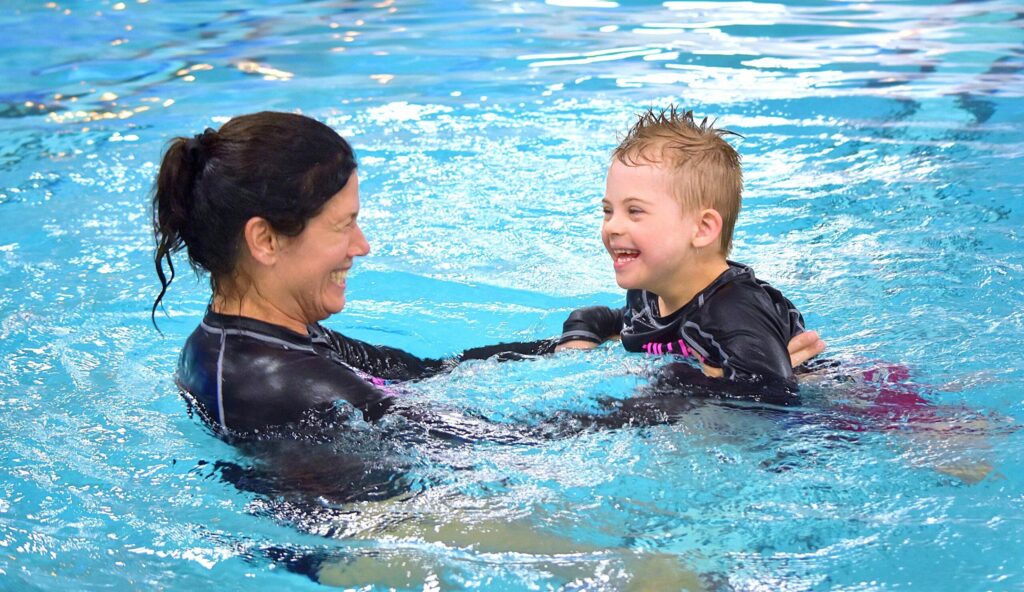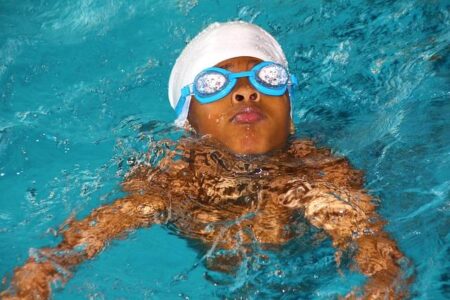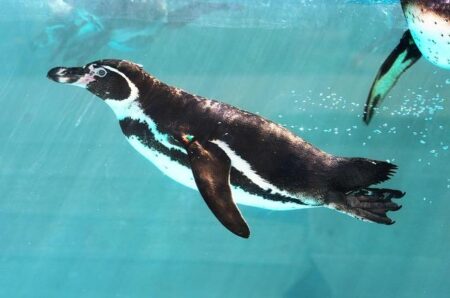The Benefits of Adaptive Swim Lessons for Children with Autism
In a world where inclusivity is increasingly prioritized, adaptive swim lessons are emerging as a vital resource for children with autism. As awareness of autism spectrum disorders continues to grow, so does the need for tailored recreational activities that cater to the unique challenges faced by these children. Swim lessons designed to be adaptive not only promote water safety but also enhance social skills, boost self-confidence, and provide a therapeutic outlet for sensory regulation. Recent studies and expert opinions highlight the myriad benefits these specialized programs offer, making a compelling case for parents and caregivers to consider this enriching form of engagement. As swim schools across the nation begin to embrace adaptive techniques, the conversation surrounding the importance of these lessons is gaining momentum—illustrating a transformative approach to inclusion in aquatic environments.
Understanding the Unique Needs of Children with Autism in Swim Education
children with autism present a myriad of unique challenges and strengths, especially in environments like swimming pools.Manny of these children might experience heightened sensory sensitivities that can make conventional swim lessons overwhelming. Therefore, swim education programs designed for them must adopt a tailored approach, focusing on understanding and accommodating their individual sensory, social, and interaction needs. Adaptive swim lessons can offer these children a safe space where they can not only learn the vital skill of swimming but engage with peers in an inclusive environment.
Key components to consider in creating effective swim education for children with autism include:
- Sensory-Pleasant Environment: Minimizing loud noises and bright lights, and using calming colors in pool areas.
- Structured Lessons: Providing clear, consistent routines that help children understand what to expect during each session.
- Individualized Instruction: Adapting teaching styles to meet the child’s communication skills,including the use of visual aids.
- Positive Reinforcement: Utilizing praise and rewards to encourage participation and foster a sense of achievement.
This individualized approach not only addresses their immediate comfort but also enhances their learning potentials. through such adaptive methods, children with autism can significantly benefit, fostering a sense of confidence and independence in the water. When swim lessons are tailored to accommodate their specific needs, it also fosters a sense of belonging and teamwork, enabling them to engage socially and develop vital interpersonal skills.
Enhancing Water Safety and Confidence Through Adaptive Techniques
Adaptive swim lessons offer a transformative approach to water safety that goes beyond traditional methods. By tailoring instruction to the unique needs of children with autism, these lessons cultivate a nurturing environment where young swimmers can develop essential skills at their own pace. this personalized experience not only enhances their physical ability in the water but also boosts their self-confidence. Parents often report that their children emerge from sessions feeling more secure and agreeable around water, reducing anxiety and fear associated with swimming.
Key components of adaptive swim instruction include:
- Individualized Instruction: Instructors assess each child’s abilities and create customized lesson plans.
- Visual Aids: Use of clear, pictorial instructions that help children understand movements and techniques.
- Positive Reinforcement: Encouragement through rewards fosters a sense of achievement and motivates continued effort.
- Consistent Routines: Establishing predictable activities helps children feel more at ease and enhances learning.
| Technique | Benefit |
|---|---|
| Floating Practice | Builds confidence and body awareness in the water |
| Breath Control | Reduces panic and enhances comfort levels while swimming |
| Motor Skill Development | Improves coordination and physical fitness |
| Group Activities | Encourages social interaction and teamwork |
Building Social Skills and Communication in the Pool Environment
Engaging in adaptive swim lessons offers a unique platform for children with autism to foster vital social skills and enhance communication.The pool environment naturally encourages interaction, providing opportunities for children to connect with instructors and peers in a supportive setting. These lessons promote teamwork, as children often work together in pairs or small groups during activities. Through structured play and collaborative exercises, participants can practice turn-taking, express their thoughts, and learn to read social cues in a relaxed atmosphere.
Moreover, adaptive swim lessons are designed to accommodate various communication styles, ensuring inclusivity for all participants. Instructors employ visual aids, gestures, and verbal prompts to facilitate understanding and encourage dialog.This method not only aids comprehension but also empowers children to verbalize their needs and feelings, which is crucial for their development. The focus on communication is further amplified by activities that require children to give directions or ask for help, thereby reinforcing their ability to communicate effectively, both in and out of the water.
Future Outlook
adaptive swim lessons offer a transformative approach to learning aquatic skills for children with autism. By providing tailored instruction and a supportive environment, these programs not only enhance water safety but also promote social interaction, sensory integration, and emotional well-being. As families continue to seek effective therapeutic and recreational opportunities for their children, the positive impact of adaptive swim lessons stands out as a promising avenue for development. As communities invest in inclusive programs and trained instructors, it is clear that the ripples of progress will continue to reach far beyond the pool, fostering a greater sense of belonging and achievement for children with autism and their families. In navigating the complexities of autism, initiatives like these underscore the importance of adaptability, understanding, and compassion in nurturing the potential of every child.





